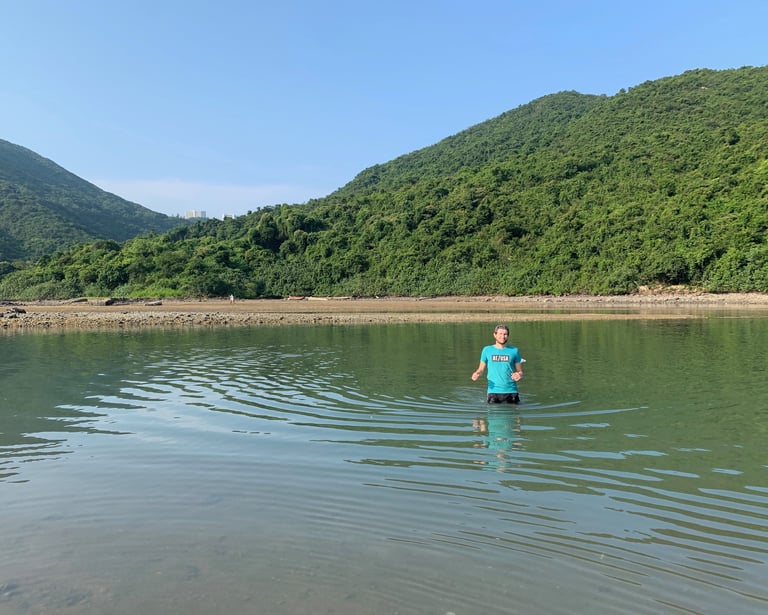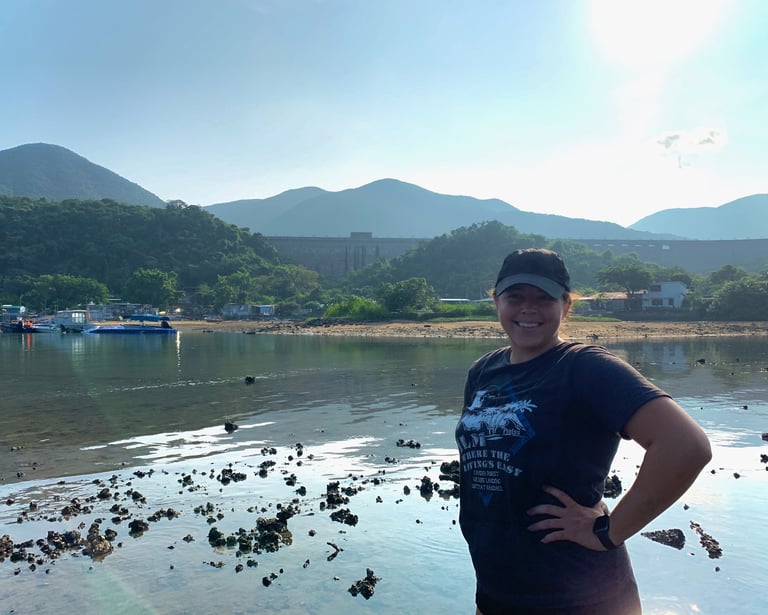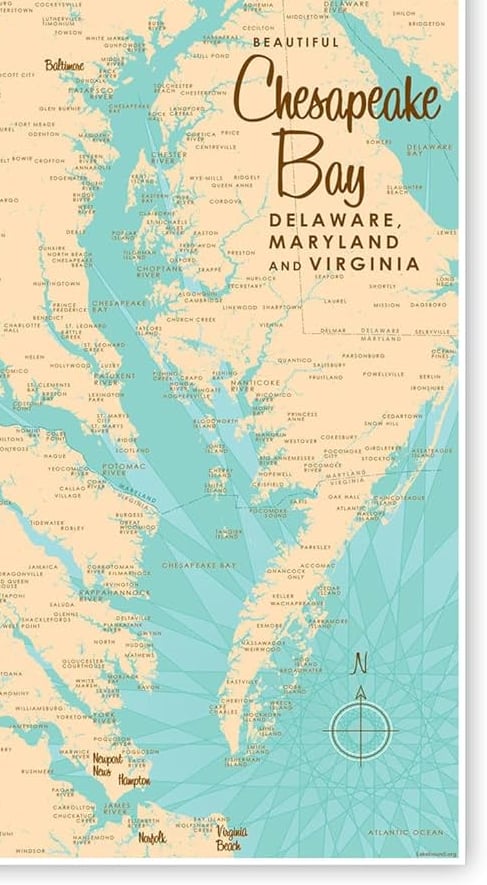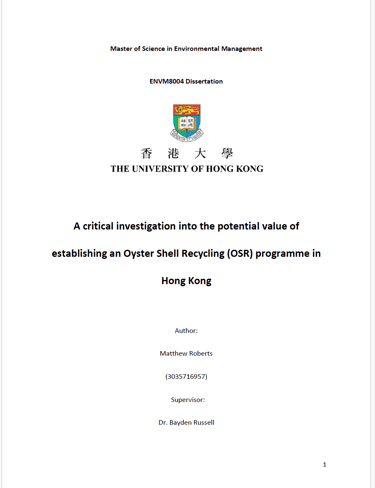Our story




The Shell Collective was born from a simple realisation: oyster shell recycling offers a pragmatic, nature-based solution to two of Hong Kong’s most urgent environmental challenges - marine ecosystem loss and organic waste.
Oyster restoration through shell recycling is not a new concept, the United States has been at the forefront of organised oyster shell recycling programmes for decades and records indicate as early as 1881, where the state of Florida recognized the importance of shell recycling by creating legislation that allowed leaseholders to plant shell to grow oysters in the Bay.
Introduced to oyster shell recycling by my partner, Sarah Taylor - a marine scientist and North Carolina native - I witnessed first-hand how oyster shells could be transformed from discarded waste into the foundation of thriving reef ecosystems.
Living in Hong Kong, the contrast was striking. Despite a rich coastal heritage and heavy oyster consumption, there were no oyster shell recycling programmes, and <90% of the Hong Kong's reefs are functional extinct. What was common sense elsewhere was almost unknown here.
Compelled to act, I dedicated a Master’s thesis to investigating the value of establishing an oyster shell recycling programme in Hong Kong and proving what we have known elsewhere for some time; oysters provide crucial and highly valuable ecosystem services and oyster shells are the best tool for their restoration.
What emerged clearly from my research is that Hong Kong, with its extensive coastal waters, substantial oyster consumption and pressing needs for both waste reduction and ecological restoration, is uniquely positioned to implement an oyster shell recycling programme. The city’s dense network of food and beverage outlets provides a reliable and accessible source of oyster shells - a resource that is globally scarce and highly valuable, yet locally treated as waste.
Hong Kong’s heavily urbanised shorelines stand to benefit significantly from the protective functions restored oyster reefs provide, while oyster filtration offers a natural, cost-effective solution to chronic marine pollution. Restoration of oyster reef ecosystems has the potential to catalyse a resurgence in local marine biodiversity, bolster ecosystem resilience, support fisheries and strengthen the ecological integrity of Hong Kong’s coastal waters. Given the city’s deep fishing heritage and enduring cultural connection to oysters, the opportunity to simultaneously restore marine ecosystems and close the loop on shell waste is both timely and practical.
What began as academic research soon evolved into a personal mission, driven by two critical insights: first, that oyster shells represent an exceptionally effective restoration resource and second, that they continue to be widely discarded as waste. By recognising and valuing oyster shells not as refuse but as essential foundational material for reef restoration, we unlock a pathway to cleaner waters, enhanced coastal resilience and revitalised marine ecosystems.
Oyster reefs provide some of the most significant and scalable ecosystem services in marine environments, and it is both our capacity and responsibility to restore them.










The Shell Collective
Recycle Shells, Restore Reefs, Revive Oceans.
Contact
info@shellcollective.org
© 2025. The Shell Collective Foundation Limited. All rights reserved. References and Credits
